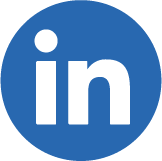Supply chain transparency is essential for food businesses that wish to retain the trust of their customers.
In the third of our Line of Trust interview series, we spoke with Olivier Touzé, Quality and Sustainability Development Director for Groupement des Mousquetaires, which owns French supermarket chain Intermarché, and Guillaume Penet, Project Manager for SGS.
Every company in the food industry has an interest in monitoring its suppliers and ensuring compliance with legal obligations in order to identify and control social and environmental quality risks, including potential cases of undeclared work or corruption. To do this, it requires specific tools. Intermarché has chosen Transparency-One as its tool for mapping the supply chains of its own brand organic food products.
Interview recorded in French – English summary provided below
Speakers

Olivier Touzé
Director of Quality and Sustainability
Les Mousquetaires Group – Intermarché

Guillaume Penet
Project Manager
SGS – Transparency-One

Annie Lichtner
Journalist, Founder of MyDigitalWeek
Interview Highlights
Mapping the organic food supply chain
Groupement des Mousquetaires introduced its approach to transparency and traceability a little over 10 years ago. It began with issues involving the importation of exotic woods. However, the company soon realized that there was a great need for transparency and traceability in Intermarché’s own brand organic foods.
As Olivier explains, “There is a boom in organic farming. There is a lot of production volume. There is a lot, above all, of consumer demand. And we saw this very strong progression between 2015, 2016, 2017.”
He points out that while Intermarché does regularly monitor its organic label, customers may still wonder if their food is really organic. The need for Intermarché to map its organic supply chain soon became apparent.
“We map organic, then we will try to find out what is behind rank 1, what we call our organic manufacturer, up to primary production,” says Olivier. “It is important to create a reliable map up to the primary rank. The latest crises have shown that there are knots in the trading sector. Before Horsegate [a 2013 scandal involving food containing horse meat that was improperly labeled as beef], we never imagined that pieces of meat or other products could circulate like that between operators. We have to unblock this channel.”
Intermarché partnered with Transparency-One, which Olivier explains is “an online platform. We can define it as a social network of companies that will connect the various stakeholders of a supply chain. It can be used to share information on the manufacturing conditions of the product, on raw materials, and on the certifications available to meet the various demands for transparency and visibility from customers.”
A pilot project was seen as a success when it revealed that shrimp used in a prepared dish sometimes came from Ecuador and sometimes came from India. Olivier said, “In India, there are perhaps more social problems than in Ecuador, so we will be more vigilant with one origin than the other.”
Getting suppliers on board
In 2018, after the success of the pilot, a project to map Intermarché’s entire organic food supply chain was launched. For it to be effective, Intermarché’s suppliers had to take part. This meant they needed to be made aware of the platform, be convinced of its benefits and be shown how to get onto it and use it. As Guillaume said, “All suppliers have an interest in participating, not only to be transparent to their customers, but to have visibility of their own suppliers as well.”
To create awareness, said Oliver, “we co-built a communication to engage our own brand manufacturers. We sent letters. We recently did webinars with manufacturers.”
“There is a lot of educational work that we do,” added Guillaume, “to support suppliers to teach them how to enter this platform.
“We will offer to communicate with them on the platform to explain the process and provide them with customized support. Then we will contact the Tier 2 suppliers and so on. It is, in fact, an opportunity to promote the sector and to promote, to direct and indirect customers, all the efforts made by the manufacturer to have more ethical supply chains.”
Moving forward
Olivier notes, “Today, we have identified roughly 600 Tier 1 manufacturers in all sectors. We have broadened our investigation into sectors other than organic…We have 39 countries identified in the database.”
“We will certainly attack the non-food sector – cotton is a very important subject in terms of risks for child labor.”
Guillaume adds, “The supply chain worldwide is more and more complex and this platform allow us to manage this complexity and identify a significant number of suppliers.”








